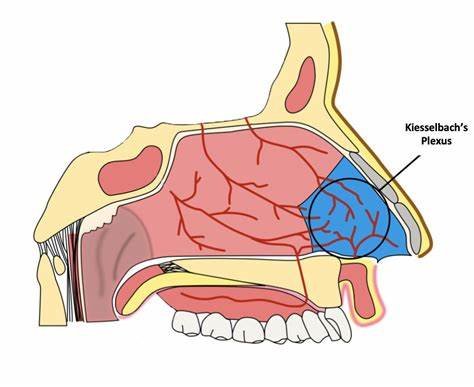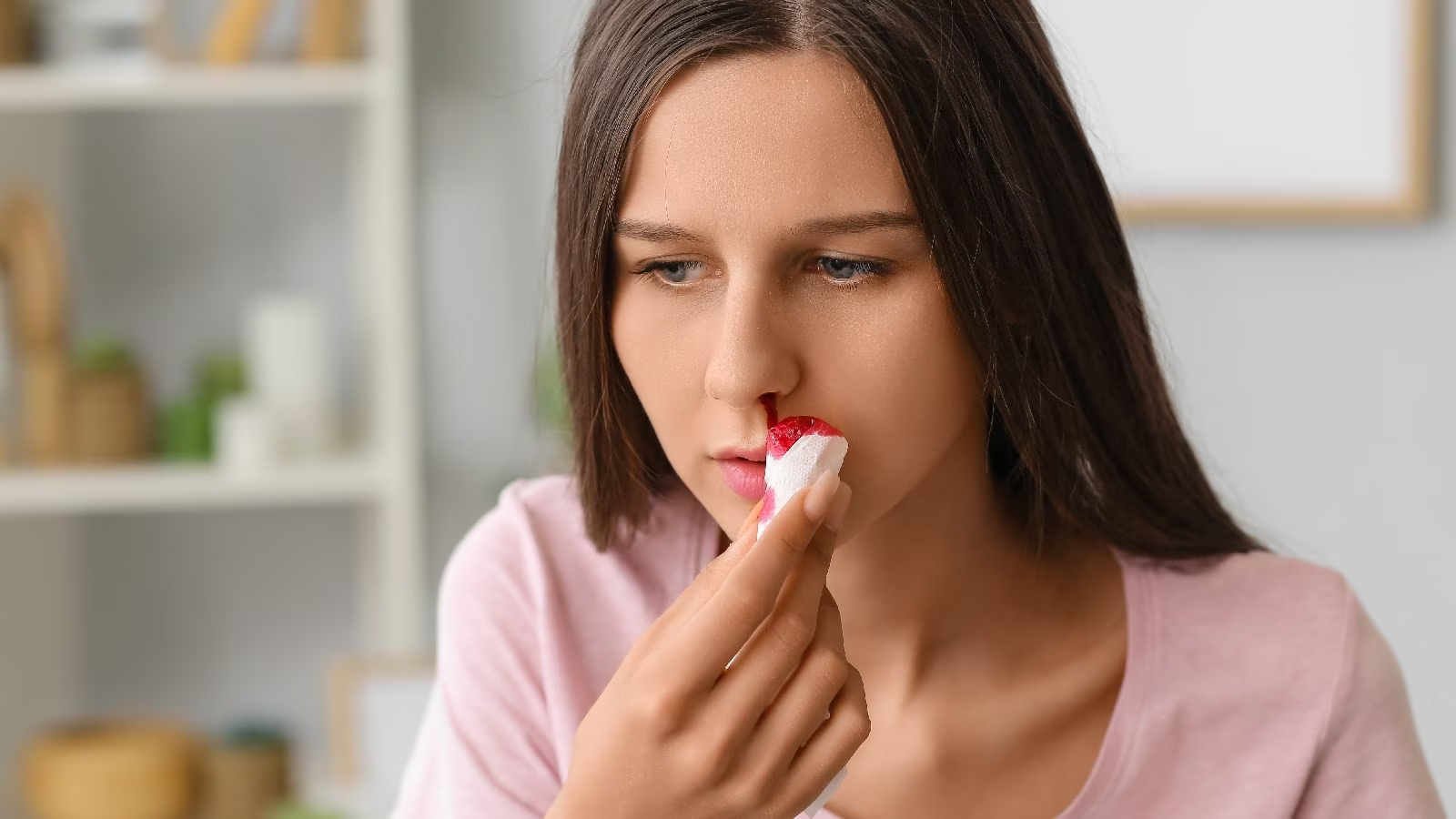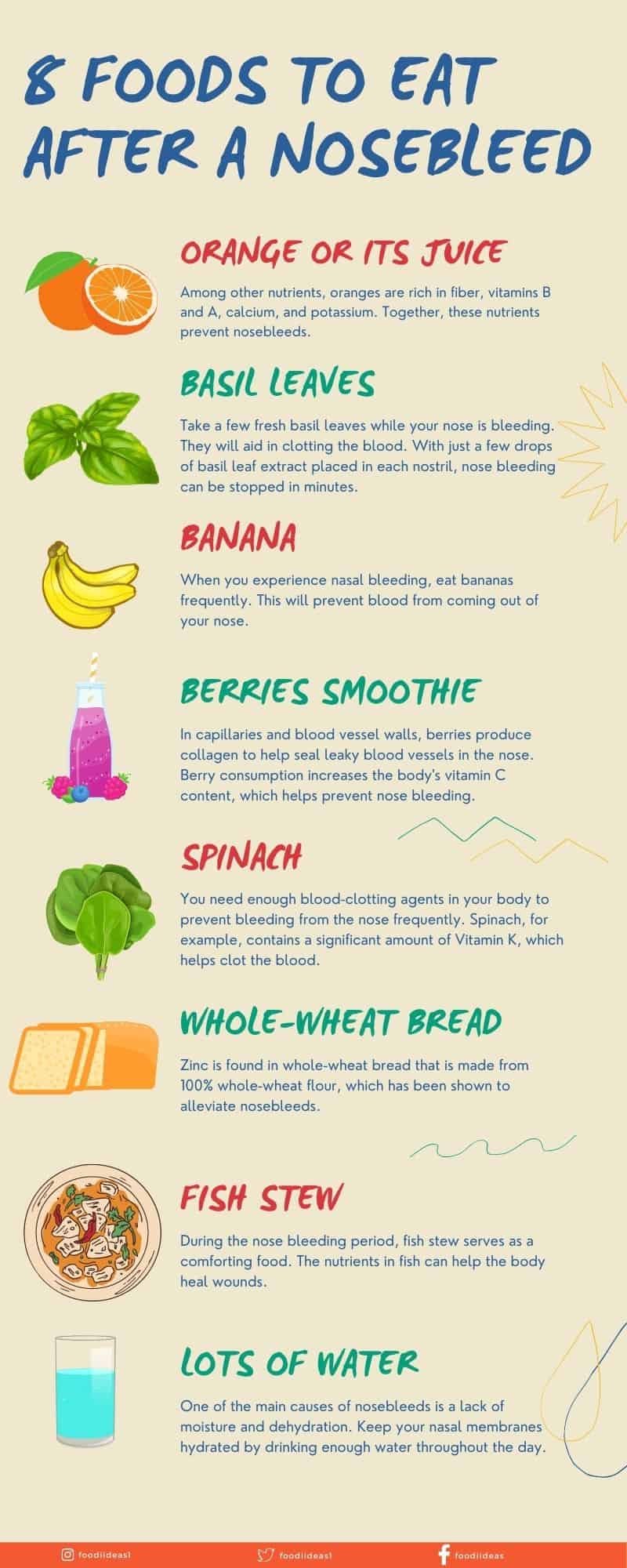Nosebleeds are common, but when they won’t stop, they can cause anxiety. If the blood flows non-stop, many feel overwhelmed and unsure of what to do. So, what should you do if nosebleeds won’t stop? How can you effectively manage this issue? In this article, we’ll provide some practical tips to help you quickly stop nosebleeds and restore calm.
What Causes Nosebleeds to Keep Going?

Before addressing how to stop nosebleeds, it’s important to understand why nosebleeds occur. The most common reasons are:
- Dry Air: During colder months, dry air can cause nasal blood vessels to become fragile, leading to bleeding.
- Forceful Blowing: Blowing your nose too hard can rupture blood vessels inside the nasal cavity.
- External Trauma: A bump to the nose or harsh sneezing can lead to bleeding.
- High Blood Pressure: Elevated blood pressure can put pressure on nasal blood vessels, causing them to break.
- Blood Disorders: Conditions like low platelet count or blood clotting disorders can make it hard to stop the bleeding.
Understanding the cause helps in addressing the nosebleed that won’t stop effectively.
How to Stop?
When nosebleeds won’t stop, remain calm and avoid panic, which can worsen the situation. The first step is to sit upright and tilt your head slightly forward to prevent blood from flowing into your throat. Pinch your nostrils together for 5–10 minutes to help stop the bleeding.
You can also use cold compresses on your nose or the back of your neck to constrict blood vessels and reduce bleeding. If your nasal passages are dry, a saline spray can provide relief.
How to Stop it Quickly?

To stop a nosebleed quickly, besides pinching your nostrils and applying cold compresses, you can try applying a small amount of petroleum jelly inside your nostrils to keep them moist. Avoid rubbing your nose or blowing it forcefully to prevent the bleeding from restarting.
How to Prevent Frequent Nosebleeds?
If you often suffer from frequent nosebleeds, consider the following preventive measures:
- Keep the Air Moist: Use a humidifier to prevent your nasal passages from drying out.
- Gentle Blowing: Be gentle when blowing your nose to avoid rupturing delicate blood vessels.
- Healthy Habits: Maintain a balanced lifestyle to help reduce stress and prevent frequent nosebleeds.
Foods That Help Prevent

Eating the right foods can help prevent nosebleeds. Foods rich in Vitamin C, like citrus fruits and spinach, help strengthen blood vessel walls, while foods high in Vitamin K, such as leafy greens, promote better blood clotting, reducing the risk of frequent nosebleeds.
When to See a Doctor?
If a nosebleed lasts longer than 20 minutes despite applying pressure, or if you feel weak or dizzy, it’s time to consult a doctor. Frequent nosebleeds should be examined by a healthcare professional to rule out any underlying health issues.
How To Treat a Nosebleed: How To Treat A Nosebleed
